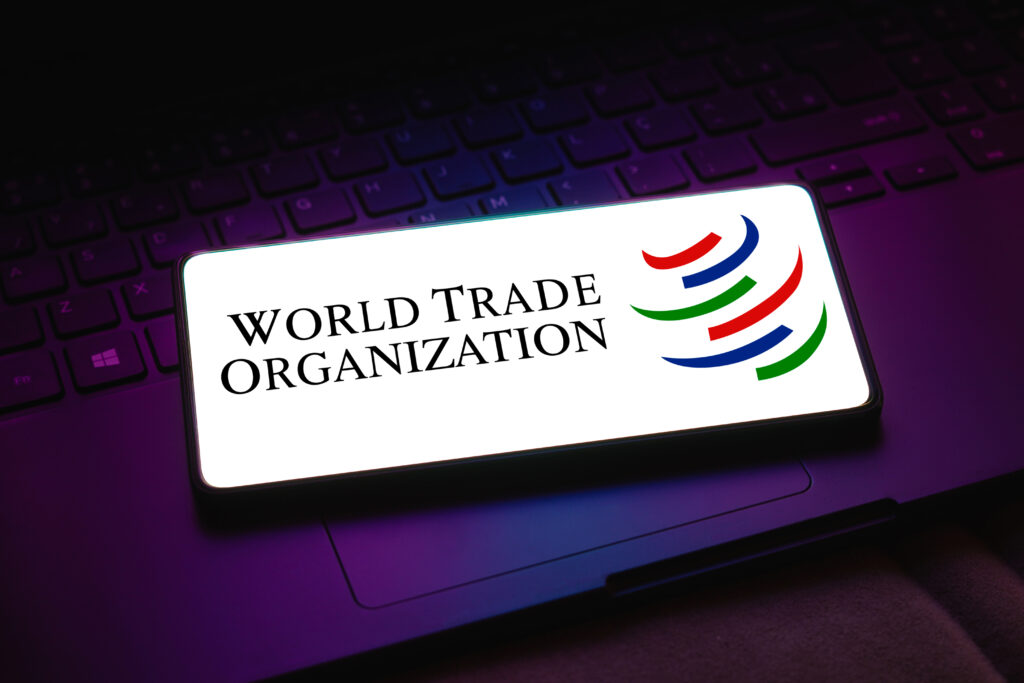The rapid narrowing of the economic and technological gap between the United States and China since the late 2010s has triggered confrontation. Because of this, security-based perspectives have shaped various measures introduced into trade and commerce around the world.
The current approach to security issues is one of the most important challenges facing the World Trade Organization (WTO). There is a need to seriously review how to harmonise security and free trade without abusing the concept of security. The war in Ukraine has shown that one area needing to be reassessed is the principle of security exceptions stipulated in Article 21 of the General Agreement on Tariffs and Trade 1994 (GATT).
One issue with adjudicating security exceptions is the ambiguities in Article 21 and a lack of sufficient precedents and deliberations related to legal interpretations. Another issue relates to the increasing instances of the losing party in WTO disputes ‘appealing into the void’ — the lack of a functional Appellate Body rendering disputes suspended until appeals can be heard.
The failure of broad trade rules to develop alongside the needs of the times has led to expanding and abusive invocations of the security exception.
In interpreting Article 21, issues related to the WTO’s legislative, trade monitoring and dispute settlement functions need to be reviewed. Permissible actions under the WTO’s framework, including trade remedy measures — such as subsidy, countervailing duty, safeguarding duty and anti-dumping rules — and Article 20, which permits general exceptions, need to be clarified.
While the recent agreement on the domestic regulation of services is progress, further deepening of the plurilateral framework — groups of likeminded members progressing on sectoral agreements — is required. Though the WTO’s e-commerce negotiations are anticipated to conclude in 2024, clarifying and modernising key WTO tools such as trade remedy measures would also be effective in deterring broad protectionist measures.
Monitoring the implementation of WTO rules also plays an important role. The established procedures used in processing special trade concerns by the WTO Committee on Technical Barriers to Trade and other committees can be helpful in the resolution of security exception cases. In circumstances where the details of the rules are not clear, the exchange of views in the relevant committees contribute significantly to mutual understanding and the resolution of the issue.
Establishing a national security committee in the WTO concentrating on security-related measures would also be worthwhile. Deliberations in this committee would be helpful in dispute settlement on security-related issues which are usually very difficult to handle in formal dispute settlement procedures due to their sensitive natures.
Significant panel decisions have occurred concerning dispute settlement on security exceptions since the Russia–Traffic in Transit case in 2019, where the WTO panel accepted Russia’s invocation of the security exception under Article 21 of the GATT. The panels’ judgments have generally taken a certain direction and the question of who has the authority to make decisions regarding security exceptions is likely to become increasingly important as a result.
A series of panels, including in the Russia–Traffic in Transit case, have held that the WTO’s dispute settlement bodies — panels — have the right to decide matters concerning security exceptions. But the United States assumes that the security concept is such that the parties to a dispute are responsible for determining exceptions and that the panels do not have the right to make such determinations. So much for the rules-based order.
Avoiding the adverse effects of the increasing use of security exceptions and accounting for the stated position of the United States may be reconciled according to the recommendations of a 2023 paper by the Peterson Institute for International Economics. It suggests that claims for compensation by adversely affected WTO members should be structured as non-violation cases under the provisions in the GATT. Recovery of damages by the member whose interests were nullified or impaired should consequently be allowed.
Issues caused by appealing into the void are not necessarily related to security exceptions. Though panels are maintained and function as the last resort of the WTO’s dispute settlement system, the problem with appealing into the void lies in the dysfunction of the Appellate Body.
There is a real danger that appealing into the void in security exception cases will proliferate and further damage the function of the WTO’s dispute settlement system. As agreed by WTO members at the 13th Ministerial Conference, all efforts should be made towards the full restoration of the dispute settlement system by the end of 2024.
An enforceable one-trial system could be a substitute for the two-trial dispute settlement system of the Appellate Body, as long as the functioning of the one-trial system can realise the benefits of stabilising dispute resolution as efficiently as in a two-trial system. This idea may provide more options if the full restoration of the dispute settlement system becomes deadlocked again.
Maintaining the balance between security exceptions and free trade will ultimately require restoring the WTO’s legislative function, realising the goals articulated in Joint Statement Initiatives and clarifying issues with negotiation such as trade remedy measures.
Michitaka Nakatomi is a Consulting Fellow at the Research Institute of Economy, Trade and Industry (RIETI) and a Special Adviser to the Japan External Trade Organization (JETRO). He is the former Principal Trade Negotiator of the Ministry of Economy, Trade and Industry (METI).

